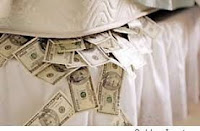The Tax Court rejected the IRS' attempt to dismiss as untimely a petition that was due on Thanksgiving. The court, citing Code Sec. 7451(d), held that since the court was inaccessible on the date the petition was due, the period for filing was tolled for the period of inaccessibility plus 14 days. (Sall, 161 TC No. 13, 11/30/2023)
The IRS issued a deficiency notice to the petitioner. The IRS mailed the notice on August 26, 2022. The 90th day after August 26 was November 24, which was Thanksgiving Day (a federal holiday).
On the notice, the IRS listed the "last day" to file a petition in the Tax Court as November 25 (the day after Thanksgiving).
However, The Day After Thanksgiving Was An Administrative Holiday For The Tax Court, So The Courthouse Was Closed.
The Court's electronic filing system was operational and accessible at all relevant times.
Mr. Sall, the petitioner, mailed his petition to the Tax Court on Monday, November 28, and the court received and filed the petition on December 1, 2022. The IRS filed a motion to dismiss the petition as untimely because Mr. Sall mailed it after the November 25 deadline.
Generally, a taxpayer must file a petition challenging a notice of deficiency within 90 days of the IRS mailing the notice. This deadline is jurisdictional and not subject to equitable tolling.
However, a filing deadline may be extended in certain circumstances. For example, the deadline for filing a petition is extended if the due date is a weekend day or a federal holiday, or if the "filing location" is inaccessible.
If the due date falls on a weekend day or a federal holiday, the due date is extended to the next business day. If the filing location is inaccessible, the due date is extended by the number of days the filing location is inaccessible plus an additional 14 days. (IRC Sec. 7451(b))
The Tax Court was closed for Thanksgiving, a federal holiday, and was also administratively closed the following day, so the filing location was inaccessible on those two days. The court received the taxpayer's petition on December 1, 2022, which was within the additional 14 days allowed by Code Sec. 7451(b).
Moreover, because the filing location was inaccessible, the availability of the court's electronic filing system was immaterial.
Have an IRS Tax Problem?
Contact the Tax Lawyers at
www.TaxAid.com or www.OVDPLaw.com
or Toll Free at 888 8TAXAID (888-882-9243)
Read more at: Tax Times blog









